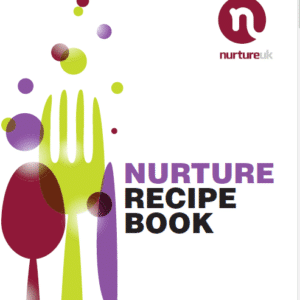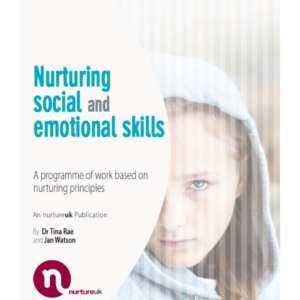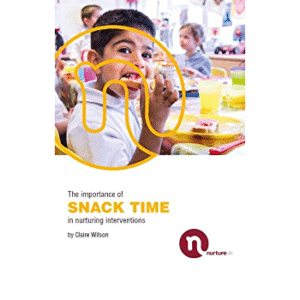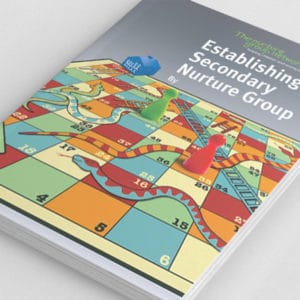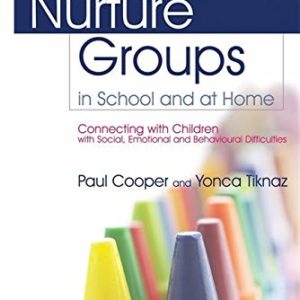The Theory and Practice of Nurture Groups

Get the training you need to help improve behaviour and engagement by addressing barriers to learning.
This training will help you to:
- Understand how neuroscience, attachment theory and developmental approaches inform nurture practice.
- Successfully use the Six Principles of Nurture in your practice.
- Identify social, emotional and development needs using the Boxall Profile®.
- Build confidence in supporting SEMH and development needs.
- Plan targeted interventions that improve pupil outcomes whether in or alongside the classroom or a dedicated nurture group.
Key features
Gain a deep understanding of the Boxall Profile® and the Six Principles of Nurture - how to identify strengths and needs to plan effective nurture support for your setting.
This online and interactive instructor-led course covers attachment theory, neuroscience and the impact of early experiences on learning and wellbeing.
Booking a place on this course will enable you to:
- Become proficient in assessing and planning support for pupils with SEMH needs.
- Understanding how the Six Principles of Nurture and neuroscience, and the impact of early experiences on learning and wellbeing.
- Gain practical strategies to improve pupil wellbeing, behaviour and learning outcomes across your school.
- Recognise the power of a nurture approach in addressing the needs of your pupils.
Course details
Duration: 3 full days (2 consecutive days, and a third day 4-6 weeks later)
Time: 9:00-16:00 (unless stated otherwise)
Fee: £699 per person (excl. VAT)
Format: Live online Zoom sessions led by an expert, plus activities on our learning platform and publications provided
Group size: maximum 12
"We have a nurture group that supports our pupils in maintaining their focus in the core lessons in the morning. They are learning strategies to regulate their emotions. The short interventions eg, motivational minutes, also help our pupils regulate their behaviour and help us maintain our calm school."
What is a nurture group?
Nurture groups offer a short term, focused intervention which addresses barriers to learning arising from social, emotional, or mental health difficulties in an inclusive, supportive manner. Children and young people continue to remain part of their own class group and usually return full-time to their main class within four terms.
A nurture group is a small group of 6 to 12 children usually based in a mainstream educational setting and staffed by two supportive adults. As well as primary settings, there are now nurture groups in early years settings, secondary schools, PRUs and special schools, (where the whole school may be classed as a ‘nurture group’) and although their organisation and time spent in the group, may be different, the principles of nurture remain the same.
Originally developed in 1969 by Educational Psychologist Marjorie Boxall, nurture groups can now be found in over 2,000 schools in the UK and internationally.
They offer the opportunity for children to experience the early nurturing experiences some children and young people lack, giving them the skills to do well at school, have positive relationships and deal more confidently and calmly with the trials and tribulations of life, for life.
First and foremost, nurture groups focus on supporting students to form attachments to consistent, loving and caring adults at school. Unconditional positive regard is one of the most powerful mechanisms for change.
Course overview
This course is suitable for those who wish to establish a nurture group in an education setting. It is also appropriate for educators who want to develop nurture practice and interventions.
This programme focuses on the theory of nurture, and its significance and implications for good practice.
The Theory and Practice of Nurture Groups training course is credit rated by the Scottish Credit Qualifications Framework (SCQF.) It is a 3-day course (attendance of all three days is a requirement), which is divided into two parts (see below) and is delivered via mix of Zoom sessions led by an expert, activities on our learning platform and corresponding publications.
Part 1: 2 consecutive days
Part 2: 1 day (4 - 6 weeks later)
Following the training, you will also receive complimentary access to the e-learning course: Introduction to the Boxall Profile® Online course (how to create an electronic Boxall Profile® Assessment online).
You will also receive complimentary access to The Snack Time Bundle .
The Snack Time Bundle is a pre-recorded webinar and digital copies of the Snack Time publication and Nurture Recipe Book.
The bundle focuses on the sharing of food in nurture settings and considers why it is such a vital part of nurture curriculum. It aims to explain the theory and research behind the snack time routine and will be helpful to nurture practitioners and those working with children with social, emotional, behavioural, mental health and speech and language difficulties to ensure that there is a whole school understanding of the rationale.
What will I learn?
This programme focuses on the theory of nurture, and its significance and implications for good practice. Key topics include:
- The theoretical framework underpinning nurture groups and nurturing approaches.
- The Six Principles of Nurture
- The relevance of early childhood experiences on the learning, development, and wellbeing of children and young people.
- How attachment theory and neuroscience underpin the Six Principles of Nurture and nurture practices.
- The Boxall Profile®
- The theoretical basis for The Boxall Profile®.
- How to undertake a Boxall Profile® Assessment and interpret its findings to plan a response to pupils’ needs.
Each delegate will receive:
- Course workbook
- Assignment framework document
- The Boxall Profile® Handbook (primary or secondary),
- Beyond the Boxall Profile® (primary or secondary),
- Paper insert for the Boxall Profile® Handbook (primary or secondary),
- Complimentary access to the e-learning course: Introduction to the Boxall Profile® Online course,
- Complimentary access to The Snack Time Bundle.
Delegates are invited to pre-read the materials in advance of the session.
The Theory and Practice of Nurture Groups online structure
Day One:
- Introductions
- Origins, context and rationale
- Nurture practice
- Neuroscience and nurture groups
Day 2:
- Attachment theory and nurture groups
- Nurture principles into practice
- Assessment using the Boxall Profile®
- The assignment
Day 3:
- Re-cap and reflection
- Ethical practice
- The assignment
- Planning with the Boxall Profile®
- Developing the curriculum
- A planned approach with the Marjorie Boxall Quality Mark Award guidance
Additional Webinar support included in the course:
- Top tips for assignment support
- Are you ready to submit your assignment?
- Key components for effective nurture provision
Assessment & accreditation
Assessment
After attending all three full days of training, delegates are invited to submit an assignment within twelve months of completing the programme.
The assignment structure:
Part 1 - Child Study (2,000 words);
Part 2 - Reflection on Professional Practice (2,000 words);
Part 3 - Portfolio (An appendix of relevant documents)
Delegates are provided with assignment guidance and framework to support working towards the accreditation.
Accreditation
On submission and gaining at least a pass grade for their assignment, delegates who undertake the SCQF credit rated Theory and Practice of Nurture Groups course will gain 13 SCQF points and receive a certificate.
The overall course has been rated as SCQF level 8. This level, along with the credit points may be recognised not only in Scotland but across the rest of the UK and Europe. For a guide on the equivalent levels across the rest of the UK and Europe please refer to: https://scqf.org.uk/wp-content/uploads/2024/08/qualifications-can-cross-boundaries-aug-23.pdf
Eligibility
This is a training programme for anyone who wants to establish a Nurture group, or for practitioners who work with children with behavioural, emotional and/or social and developmental needs. It is also useful for educators who want to develop nurture practice and interventions.
What delegates say
Net Promoter Score (NPS)
Our Net Promoter Score* awarded by attendees this year is 86 (excellent)
87% of participants scored the programme 9 or 10 out of 10 when asked how likely they are to recommend it.
Over two thirds said it had exceeded their expectations.
*Net Promoter Score is widely used to measure customer satisfaction. NPS scores range from -100 to +100, and a score of 0 is considered good.
"I found it very informative and [the] content very thoroughly covered at an appropriate pace. Our trainer was very knowledgeable and answered all our questions, as well as allowing for group discussion. It has really motivated me, and I feel much more ready to take on my new role as a nurture teacher."
"The trainers were amazing, so accommodating and considerate. Very lucky to have lovely group of learners, enjoyed the small size of the group so could all contribute and feel sense of belonging. Informative and so interesting exploring the topics of Neuroscience and attachment theory."
"A great balance of theory behind nurture and why it’s important but also giving practical advice about how to successfully set up a nurture group or intervention."
"Clarified what I believed Nurture to be but has given me the background knowledge/science to prove it and explain it."
You may also be interested in..
-
When the Adults Change Everything Changes
£12.50Original price was: £12.50.£11.25Current price is: £11.25. Add to basket -
Beyond the Boxall Profile® for Young People: Whole-Class Strategies (for Secondary settings)
£35.00Original price was: £35.00.£31.50Current price is: £31.50. Add to basket -
A Toolbox of Wellbeing
£15.99Original price was: £15.99.£14.39Current price is: £14.39. Add to basket -
Transition Tool Box
£55.00Original price was: £55.00.£49.50Current price is: £49.50. excl. VAT Add to basket -
Nurture groups in schools: Principles and practice
£44.99Original price was: £44.99.£40.49Current price is: £40.49. Add to basket -
-
Nurturing Social & Emotional Skills
£30.00Original price was: £30.00.£27.00Current price is: £27.00. Add to basket -
-
Establishing a secondary nurture group
£25.00Original price was: £25.00.£22.50Current price is: £22.50. excl. VAT Add to basket -
Nurture Groups in school and at home
£18.99Original price was: £18.99.£17.09Current price is: £17.09. Add to basket -
Affirmation Cards
£36.00Original price was: £36.00.£32.40Current price is: £32.40. excl. VAT Add to basket -
Bereavement Box
£55.00Original price was: £55.00.£49.50Current price is: £49.50. excl. VAT Add to basket







